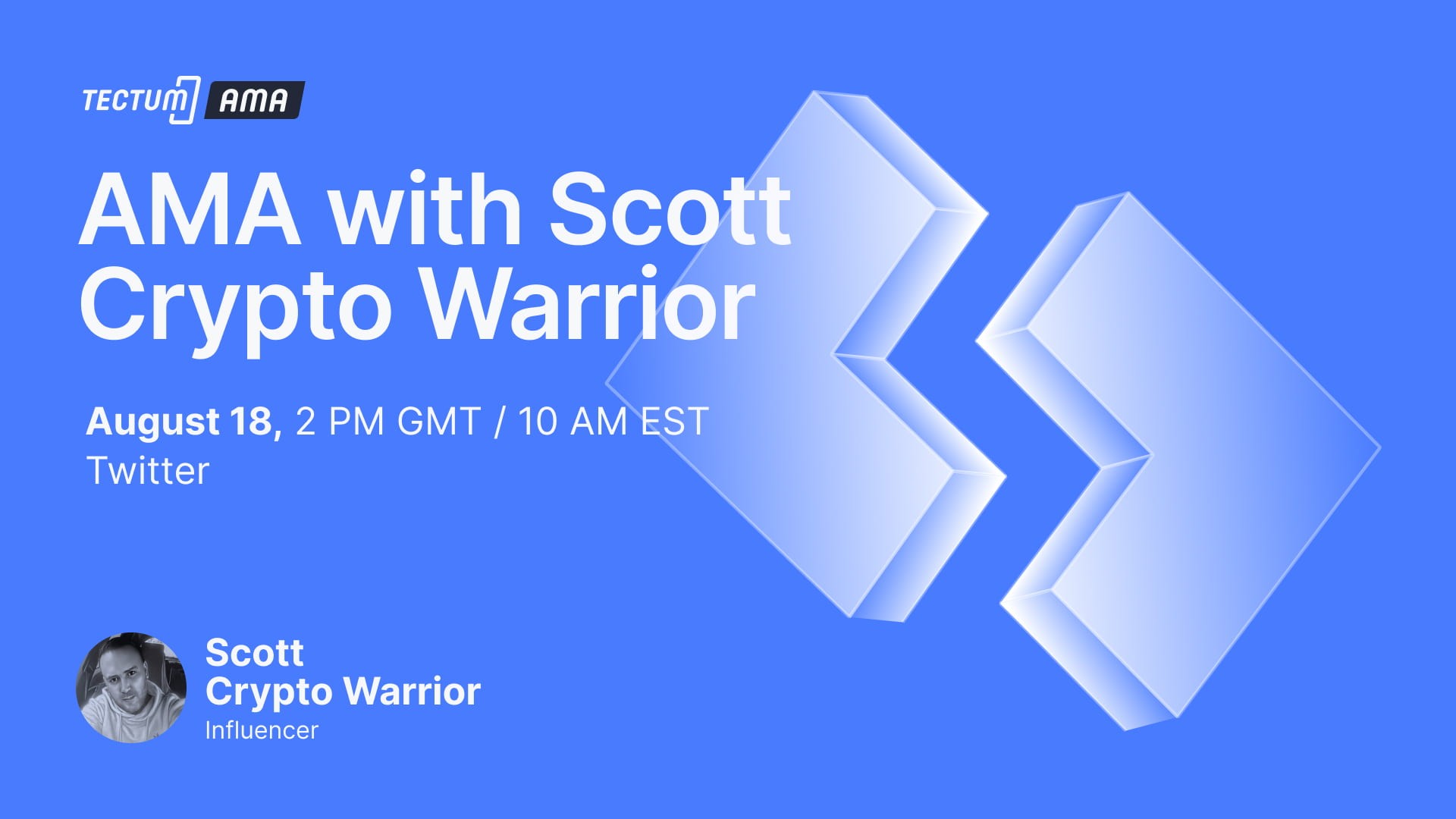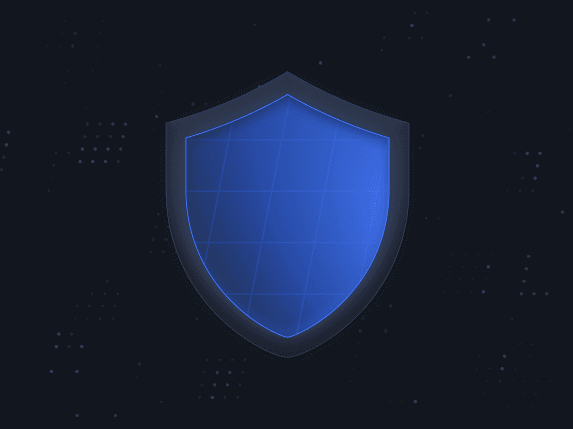However, we observed that some individuals were unable to join the session. More so, there were numerous other persons who joined in late. Tectum is a people-centered project that is designed to meet the needs of our users. Considering this idea, it is essential that we reach as many individuals as possible.
However, we cannot do this if our message only reaches very few people. To ensure that those who missed out on the space also get insights about the discussion, Tectum is issuing this AMA report. It is a detailed account of the main issues discussed during that session.
Takeaways from the Tectum AMA Session Scott Crypto Warrior
The AMA session began with the CSO introducing himself, Cripsmind (our parent company), the Tectum blockchain, and his role in promoting mass adoption. He was followed by Trevor Mccarter – the COO of Crispmind, who shared insights into his role in the company and his journey into his web3. Trevor also explained how he was sold in on the idea of the Tectum Project.
Albert Price (Chief Compliance Officer) also spoke about the innovativeness of the Tectum SoftNote and how it is a game changer in transactions. After the introductions, the team members responded to various questions.
Tell us About the Tectum and Why Its blockchain is So Fast
Tectum began as a B2B company that provided security services for various companies. In a bid to meet the needs of our clients, the company developed numerous cutting-edge technology due to several years of research and improvements. One of the technological advancements included a blockchain.
In 2017, there was significant traction about blockchain and cryptocurrencies. The team decided to improve the blockchain and give it a consensus mechanism. After further research, the team decided to utilize the “proof of utility” consensus mechanism. However, further upgrades have been added to include the “proof of stake” as well.
The Tectum blockchain is fundamentally different from the traditional layer 1 blockchain. In addition, it works with many other cryptocurrencies like Bitcoin, Ethereum, etc.
What Do SoftNotes Do? How Do They Work?
SoftNote was born as a result of the need to improve our ecosystem further. It is a digital envelope that can be used to transfer cryptographic assets. SoftNote is first minted, and people can integrate it into Bitcoin, Ethereum, USDT, and Litecoin.
People who own $TET can mint SoftNote, and anyone who mints this digital representation of cryptocurrencies gets a minting license. The same thing also applies to the person who provides the liquidity. More so, this process applies even when the person who mints the SoftNote Bill is different from the one that provides liquidity.
Users who make payments using SoftNote Bills will transfer their Bitcoin, Ethereum, USDT, and Litecoin at no extra charges. Merchants will only be required to pay 1% of the funds they receive. 20% of the revenue from transfers will be paid to the user who minted the bill or provided liquidity.
SoftNote Bills can also be used totally off-grid. The receiver can print the SoftNode as a QR Code on a piece of paper and use it like fiat money. However, they will require a passcode to unlock the funds held on the SoftNode. People can also use the blockchain explorer to confirm that the SoftNote Bill contains the stated number of cryptocurrencies.
Finally, anyone who wants to get their cryptocurrencies can simply burn the SoftNote Bill they are currently holding. However, most people will rather keep the bill and trade Bitcoin, Ethereum, etc, without paying gas fees.
What Makes Tectum and the SoftNote Bill Different From Other Payment Systems?
SoftNote solves the lightning chain problem. Unlike other fast networks, SoftNote does not settle Bitcoin and Ethereum transactions on BTC or ERC-20 networks. This means that users do not need to pay gas fees, and transactions are completed instantly.
What Are The Benefits of Holding the Tectum Emission Token?
Anyone who mints a SoftNote that is used for commercial purposes will receive 20% of the transaction fees. Furthermore, anyone who provides liquidity will receive 20%. This means that if you mint the SoftNote and provide liquidity, you will receive 40% of transaction fees.
Besides the benefits of minting and providing liquidity for SoftNote Bills, there are several other benefits for $TET holders. Tectum intends to launch public nodes as part of its plans to ensure proper decentralization.
To run these nodes, people will need to stake their tokens. People who run nodes will receive rewards for every transaction that runs through their nodes. In addition, people will be able to pool their tokens together in order to run a node.
In addition, individuals who hold our native token will get priority access to upcoming product launches. They will also get discounts and countless other incentives within the Tectum ecosystem.
Are There Any Upcoming Products?
We recently launched the Tectum Integrated Assistant (TIA) bot that keeps individuals updated about the rectum ecosystem. Furthermore, there are plans to expand the module to include comprehensive information about web3 at large.
More so, we intend to develop an application that can offer AI services in other fields. This includes medicine, trust laws, and other aspects of life
Away from Artificial independence, Tectum is working with Independent Sales Organizations (ISOs) to ensure mass adoption of SoftNote Bills. There are already plans and on-the-ground work to get more establishments to incorporate the use of our Bills in their services. We are also working on the Merchant Terminals.
We are also refining the product to improve our services further. This will ensure that we can support a significant amount of merchants as we gain better adoption.
We have recently launched tectum labs, where we incubate projects. At the moment, we are working with a move-to-earn project to enable them to integrate their micro-rewards into the Tectum blockchain, where they will not pay gas fees. Tectum is open to working with other projects looking to cut down costs on transactions.
Why Tectum Choose Delphi Programming Language and Papatori Protocols Instead of Other Alternatives? How Do They Contribute to The Security and Speed of Data Transmission?
Tectum decided to work with Delphi because it shares significant similarities with machine learning. Nonetheless, we are updating our programming language to C#.
Standard Layer 1 blockchain transfers data in packets. This method means that transactions are completed in batches. Instead of this method, tectum uses a constant flow where the portal remains open. Think of it like charging your phone via an electric socket. Therefore, the sender and receiver do not have to constantly initiate and close out transactions.
However, Tectum needed to ensure sustained and longer uptime in order to reach the TPS of 1.3 million. This is why the team decided against using OSI Layer 1 or OSI Layer 2, as it will hinder the transaction speed. Instead, we combined the proof of utility consensus mechanism and hashing algorithm by the Tectum blockchain to keep the nodes running and ensure longer uptime.
Closing Remark of the Tectum AMA For August 18th
Tectum is working significantly towards bringing real-life cases to support many people. There are individuals in third-world countries with children in developed parts of the world. However, they cannot receive funds from their kids because of the lack of storage and transfer of value. The future is very promising for this project, and we are entering into a brave new world.









